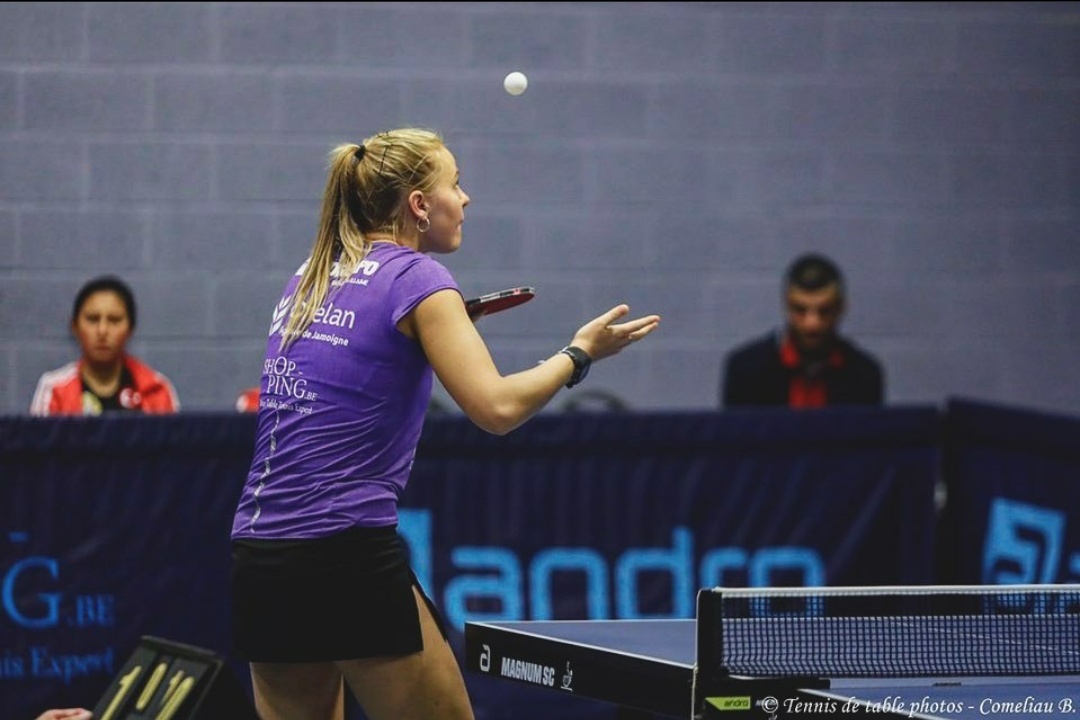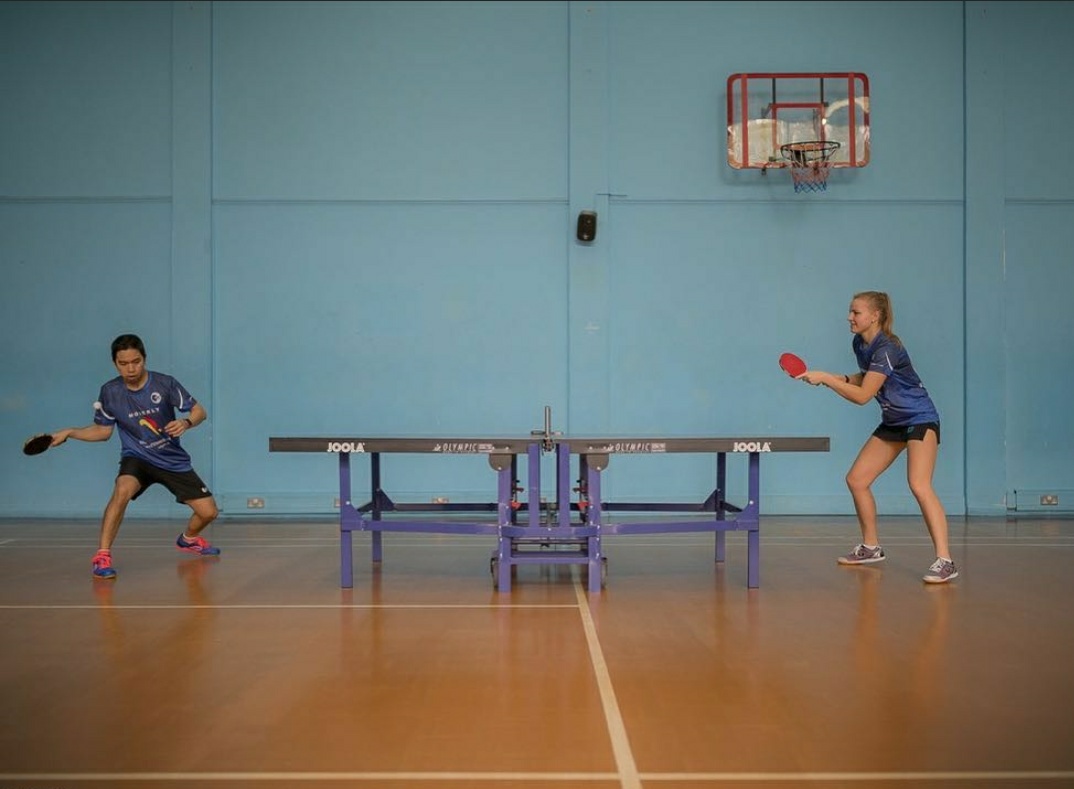“Ping Pong gave us a platform to show everyone we’re not inferior to men”: London player Viktorija Stirbyte reflects on World Championships 2020

Despite a large number of sports played worldwide, only a handful involve men and women facing each other in singles competition. This is often done to level the playing field and make matchups more competitive, but sometimes adding mixed-gender events makes contests a tad interesting and provides unique viewing experiences for spectators.
Typically, in sports where the physical differences between men and women are deemed not to have any effect on the outcome of any competition, like equestrian and sailing events, we see men and women competing against one another. Another sport where we see something similar is in ping pong.
Yes, ping pong, not table tennis. The use of the traditional sandpaper bats instead of the super-spin inducing rubber ones is what makes ping pong such a unique sport – making the participants rely solely on their abilities like speed, power and old-fashioned skills instead of the strengths of their bats.
One may be forgiven for thinking that the sport favours the physically stronger of the two competitors, but it’s a myth that Matchroom Sport, the organisers of the recently concluded World Ping Pong Championships, and the female players on the card are looking to eradicate.

Viktorija Stirbyte, a Lithuanian table tennis and ping pong player staying in East London, spoke to Sports Gazette at the event voicing her opinions on having the same draw for both genders. According to her, the tournament gave her and the other female players a platform to show they’re up for the challenge posed by their male counterparts.
“I love facing off against the men. We are the same. We have the same advantage and the same bats. Through ping pong, I can show who I am. I can silence the people who say: ‘She’s weaker because she’s a lady.’ We’ve shown everyone that we can match up to the men and are not inferior to them,” said Stirbyte.
“Some of the guys might be thinking that the ladies are lesser players, but we are not. I’m grateful for this platform given by Matchroom for me to challenge the men.”
Chinese player Chen Jie enjoyed a remarkable run at the 2019 World Championships where she reached the semifinals. Her splendid performances throughout the event inspired more women to compete and this year, there were twice as many participants (six) compared to last year.
And this is precisely what the sport needs, Stirbyte believes. From being an umpire at Ally Pally from 2017 to 2019, she finally decided to step out there and see what it takes to play in front of a thousand noisy fans following her every move and it’s safe to say that she hasn’t regretted it all.
“After umpiring here, I was invited by a few players to play a promotional event in China. Initially I hesitated, but going to China was a huge opportunity and learning the sport from the Chinese players would be a completely different experience. That’s what gave me the inspiration to come out and compete and I’m glad I did,” she explained.

Having spent a considerable amount of time in China, the 27-year-old noticed stark differences in the way table tennis and ping pong are treated there in comparison to the United Kingdom. Thus, the statistic of no British team winning an Olympic medal in table tennis does not come as any surprise to her.
She spoke about the importance of marketable sports like football and cricket and how their commercialisation has led her sport to be neglected. It’s perhaps one of the major reasons why very few people consider it as a professional career option.
“The difference between England and China is that the game is more commercial in China. They’re willing to invest a lot of money in the sport there. Whereas, in comparison there is no budget here,” said Stirbyte.
“In China, they have a Super League, different divisions and full-time players. Here, they’re only focused on sports like cricket and football which draw viewership numbers.”
Wherever she goes to train or take part in tournaments, she bares the costs of it and believes it’s next to impossible for her to find a sponsor as long as she is in the country. According to her, per every sandpaper player in Europe, there are a hundred in China, which explains why there’s such a massive gulf in class.
Stirbyte was one of only nine European players in the Ping Pong World Cup played in China two months ago and described their performances, including her own, as “very bad” in comparison to the other participants.
“It’s such a pity that I have to look for a sponsor. It’s highly improbable as they don’t know me and don’t have access to my results. This is the case for all players here like me who are aspiring to make it big,” she stated.
The lack of tournaments goes hand in hand with the lack of earnings, forcing the 27-year-old to work as a men’s tailor to lead a comfortable lifestyle. However, after a hectic few months, she’s decided to take a break from her job.
Her plan is to clear her mind and go backpacking to Asia for a while before she starts working on her game as she aims to come back stronger in the 2021 edition of the World Championships.